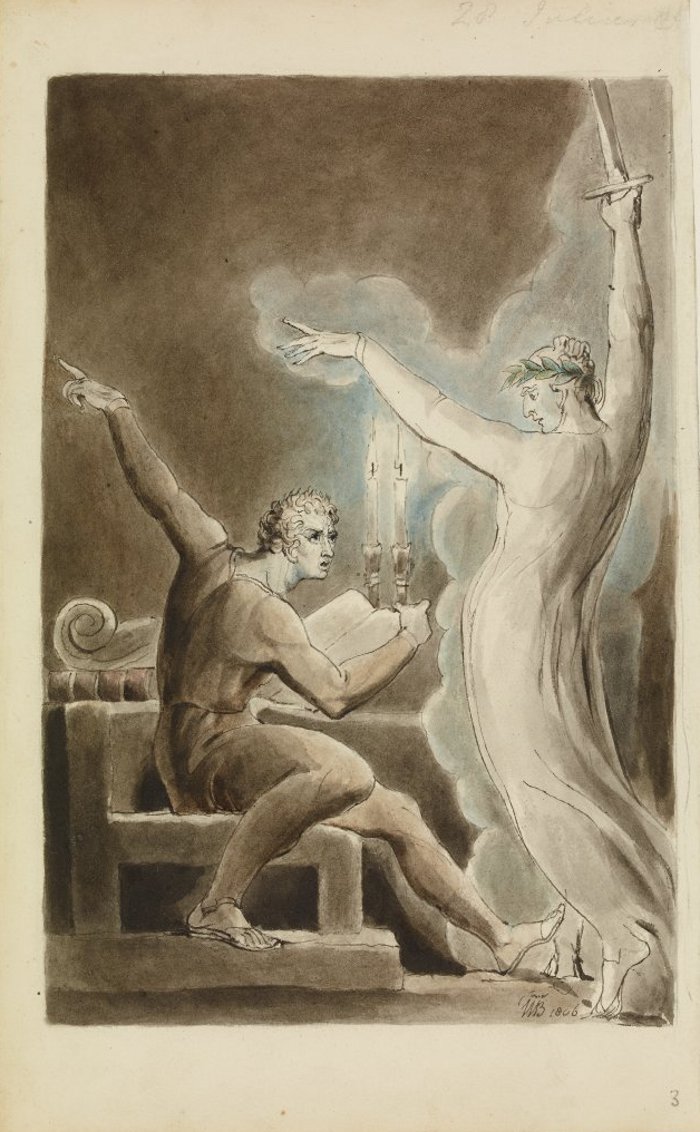
Another revolution around the sun and the ill-fated ides of March are here once again. I prophesy we’re due for an op-ed or two ruminating on parallels between our current political moment, the bloody last days of the Roman Republic and Shakespeare’s dramatized version of events. Could I be skilled in the ancient arts of harupsicy? Or am I simply recognizing what the classics do best, i.e. in the words of ”provide us with a complex, poetic language for imagining and interpreting the intractable world in which we live.”
The times are ripe for comparison, particularly as established leaders abroad like the embattled Venezuelan President Nicolás Maduro, Haitian President Jovenel Moïse and Israeli Prime Minister Benjamin Netanyahu are all facing significant challenges to their power, not to mention our own soap-operatic political spectacle unfolding at home. For some however, such suggestion of analogy with the ides of March draws ire.
But if all this phrase brings to mind is some hazy memory of the 2011 George Clooney election drama, no shame. Let’s review.
Ides – A term in the Roman calendar marking a month’s first full moon, which falls during the middle of that month.
- The ides of March — Literally, March 15th. In history, the day of Julius Caesar’s assassination in 44 B.C., which precipitated years of further* civil war and solidified Rome’s future as an empire under one ruler. Symbolically, an omen of political insurgency or, in general, betrayal. *The Republic had already been embroiled in civil war as Caesar crossed the Rubicon five years prior. This step ignited war with rival Pompey’s armies and paved the way to Caesar’s appointment as “Dictator perpetuo”.
- “Beware the ides of March” – A soothsayer’s unheeded warning to Caesar from Act I, Scene 2 of William Shakespeare’s play “The Tragedy of Julius Caesar.” Caesar notoriously shrugs off this prophecy, merely claiming, “He is a dreamer.” And the rest is history.

So what really got the conspirators’ blood boiling? And were they right to try toppling a budding dictatorship by such means? It depends who you ask, especially when we use the play to interpret politics during a highly polarized moment. We may find ourselves ignoring certain details to suit our tribe and supporting characters who we consider to share our values. I think of Caesar’s assassination as a Rorschach test of sorts, where some see acts of treason while others see a patriotic, though misguided defense of democracy. Brutus embodies the latter, as at the top of Act II, he warns, “at [Caesar’s] will he may do danger…/ The abuse of greatness is, when it disjoins/ Remorse from power.”

Behind Brutus’ decision to strike lies Cassius, Casca and company, who many take to be vindictive instigators, more concerned with preserving their personal power in the Senate than the republican institutions at stake. Does their intervening in the rise of a tyrant justify corrupt motives? Considering their litany of deaths by the end of Shakespeare’s play (hello, “tragedy” is in the title), some may feel that karma rightfully runs its course, but at what cost? Ultimately, the Republic collapses into the power vacuum created in the wake of Caesar’s murder, and the conspirators encounter a hostile public contrary to their expectations of being hailed as liberators. Those of us who would support Brutus must reevaluate as we see the situation spiral out of control. Jesse Green, a theater reviewer for the New York Times puts it this way: “We are asked to consider how far citizens may go in removing a destructive leader, and we are warned about unforeseen consequences.”
Curious to see if whether the ides of March curse rears its ugly head this year? Keep up with current events by reading recent newspapers and magazines in print or through one of our newspaper databases. Pick from numerous stagings between Hoopla, Kanopy, and our DVD collection. You can also commemorate the day by referring to this handy book list. With that, I bid a merry ides* to you! Please celebrate responsibly.
*According the the 2019 Old Farmer’s Almanac, the March full moon falls on the 21st, not the 15th.


